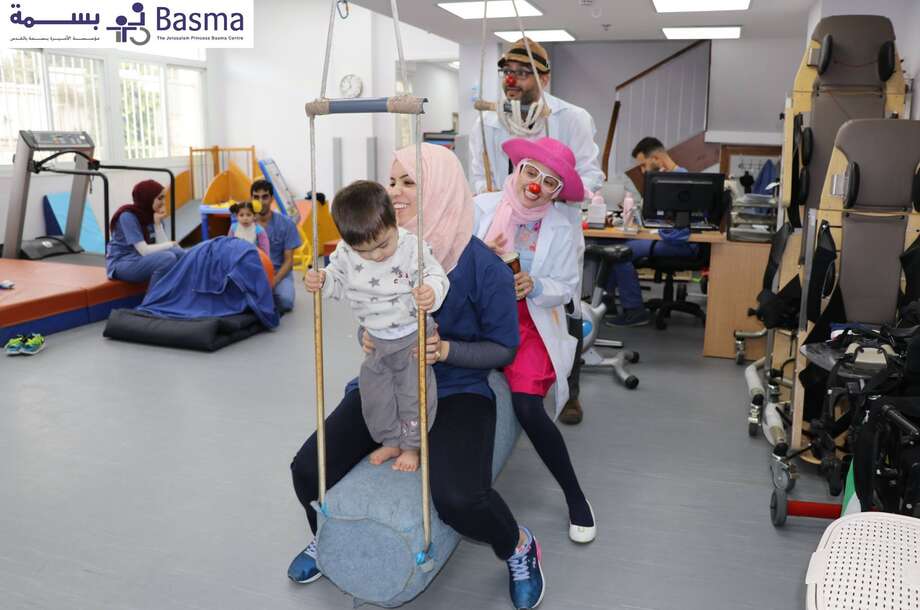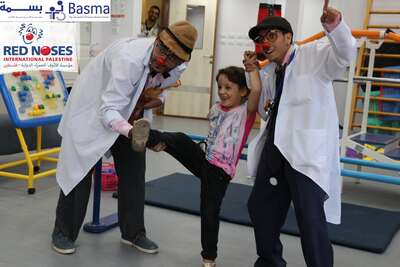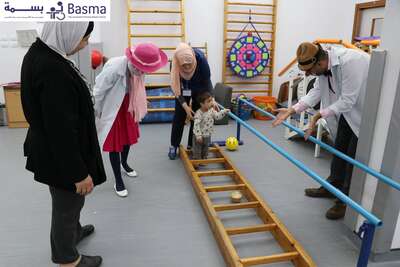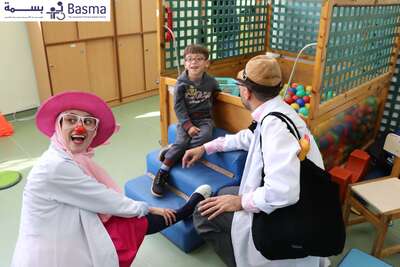
RED NOSES Palestine started to work with children in rehabilitation centre
During the year 2017 RED NOSES Palestine reached many of its ambitious goals! It increased its number of clowns, carried out several international workshops and training opportunities for the professional education of its clowns and developed new programmes, reaching out to target groups in need of joy and laughter. The Austrian Development Agency, the operational unit of Austrian Development Co-operation, supports the programmes of RED NOSES Palestine.
A milestone was the start of visits to the Jerusalem Princess Basma Centre for children with disabilities and children under-going rehabilitation in October 2017. With this new step, RNPS is recognizing the need to address the emotional needs of children with disabilities that form a valuable part of the Palestinian community. When the clowns started the new visits to Princess Basma Centre, it didn’t take long for them to notice the immense difference their interventions made. In 2017 our clowndoctors visited the Princess Basma Centre 12 times providing psychosocial support and emotional relief to children undergoing rehabilitation.
Here is an account of Dr. SimSim and how he recalls one of the visits:
A little girl was the first to welcome us on our visit to the Jerusalem Princess Basma Centre. She was running and crying and we didn’t know why. We were treated to a warm welcome by the staff there, but the scream of that little girl made us hurry inside, wearing our RED NOSES, hoping to find a way to calm her down.
We were unable to pronounce her name, until the end of the visit, which turned out to be “Narinian”. We started by spelling her name and trying to pronounce it, much to her surprise, and then we sang to her an Arabic Song (Nari Nareen) because it had words that were phonetically similar to her name. In a moment that we could only describe as magical, she stopped screaming and took the hand of my partner Dr. Fostoq. This was a surprise to all those who were with her as well as to the physicians.
During all the time we spent with her, we sang and played music. She grabbed the drum and started hitting it, then she danced, asking for a special song called “Deheyyeh” to be sung for her.
In an indirect way, we asked the physicians what their treatment plan for her was, and what they wanted her to do. They needed her to climb up and down the stairs and so we created a train while we were still playing the music and singing. We climbed the stairs up and down with “Narinian” closely following our steps. The team of physicians was looking at us, surprised by how we made her climb easily without any resistance.
Honestly, I felt something I haven’t felt before, a new kind of success; her scream, in the beginning, was one of my motivations to achieve something good with her.
6/11/2017
Dr. SimSim




